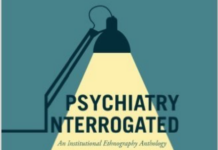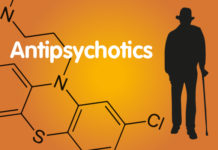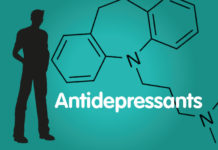Sir Robin Murray and Our Collective Mea Culpa
Sir Robin Murray, a distinguished British professor of psychiatry, recently published a paper in Schizophrenia Bulletin titled, “Mistakes I Have Made in My Research Career.” I wonder what leads Robin Murray to acknowledge his mistakes when others seem to hunker down. I also wonder how I can know when I am misled in my assumptions.
Psychiatry Interrogated: A Book Review
Psychiatry routinely presents itself as a legitimate medical specialty differing from the other specialties only in the kinds of illnesses treated. But there is another important difference between psychiatry and real medicine. Psychiatry's core concepts are embedded formally and informally in our legal, social, educational, and workplace institutions in ways that the other medical specialties are not.
Treating Metabolic Conditions May Resolve Some Depressive Symptoms
New research suggests that treatable metabolic abnormalities underlie some treatment-resistant cases of depression—and treating the metabolic condition has the possibility of dramatically reducing depressive symptoms
Stripped of False Realities: Americans’ Political “Psychotic Break”
Bruce Levine, writing to MIA about his popular story on Counterpunch yesterday, wrote "It's basically a politics/election piece, which is why I didn't post...
Pioneering New Zealand Antipsychotic Medication Study Focuses on Patient Experiences
Miriam Larsen-Barr's study is the largest to date on the subjective experiences of antipsychotic withdrawal, and the first to explore how people who have successfully stopped antipsychotics are able to maintain their well-being.
Carrie Fisher, Bipolar Disorder, and the Spread of False Information
As a child of the 80s, I had a childhood dream of growing up to be Princess Leia, and — of course — marrying Han Solo. What I did not dream of was fighting an empire that seems only to grow over time, and with no Harrison Ford by my side to make it all better. The death of Carrie Fisher is heartbreaking; the news coverage of her life and suffering is a tragedy.
Carrie Fisher: Bipolar Meds and Heart Disease
Carrie Fisher recently died of a heart attack at age 60. How likely was it that her heart attack was caused by her psych meds? Or that her psych meds increased her risk of death once the heart attack happened?
Soldiers as Guinea Pigs: the Case of Mefloquine and Tafenoquine
Hundreds of Australian veterans have been diagnosed with serious neurological and psychiatric disorders, often mistaken for post-traumatic stress disorder, as a result of mefloquine, a neurotoxicant able to cause a “lasting or permanent” brain injury, and the experimental drug tafenoquine[.] Many maintain they were compelled to participate in trials of the drugs.
The Real “Mental Illness” Epidemic: Withdrawal from Antidepressants
If the incidence of mental illness has remained the same, but an ever-increasing percentage of the population takes psychiatric medications, then these drugs are being over-prescribed. Now there is an epidemic of people trying to stop SSRI antidepressants, and the effects can be crippling.
“German Libraries Boycott Elsevier Demanding Open Access”
Germany's DEAL project, which includes over 60 major research institutions, has announced that all of its members are canceling their subscriptions to all of...
“Psychiatry’s List of Disorders Needs Real-Time Updates”
In a First Opinion piece for STAT, Michael First argues that a digital DSM should allow updates between editions. The American Psychiatric Association (APA)...
Withdrawal from Mood Stabilizers
A review of the scientific literature for withdrawal from mood stabilizers: mechanism of action, animal studies, withdrawal symptoms, discontinuation success rates, and relapse rates related to tapering speeds.
Withdrawal from Antipsychotics
A review of the scientific literature related to the withdrawal of antipsychotics: animal studies, withdrawal symptoms, tapering success rates, and consumer accounts of discontinuation.
Withdrawal from Antidepressants
A review of the scientific literature related to withdrawal from antidepressants: mechanism of action; long-term effects of exposure to antidepressants; discontinuation syndromes; relapse upon discontinuation; tapering protocols.
Withdrawal from ADHD Medications
This guide to the scientific literature on withdrawal from ADHD drugs provides a review of animal studies, withdrawal syndromes,
and possible tapering protocols.
“Navigating” Recovery: Difficult When the Map is a Psychiatric Fraud!
I was recently asked to contrast my views on psychosis and recovery with those offered by NAVIGATE, a US government (NIMH) sponsored program aiming to guide early intervention programs for psychosis. This inspired me to inquire into what NAVIGATE does tell people and families about psychosis and recovery. What I found, unfortunately, was quite disturbing.
The ACE Survey is Unusable Data
Do the effects of trauma matter more, or a person's ACE score? I think this is unusable data that harms people when you gather it. Here's why.
Troubled by Individual and Collective Psychosis? Maybe Compassion and Dialogue Could Help!
We need to learn to listen and respond in a caring way to the disturbed and disturbing voices within the population—to really engage with them, while also not believing any lies or distortions or letting destructive forces take over.
Pharma Data Sharing Efforts Off to a Slow Start
Researchers discuss the preliminary results of clinical trial data sharing efforts by pharmaceutical companies and other groups.
Is Society or Psychiatry to Blame for the “Seriously Mentally Ill” Dying 25 Years...
Adults in the U.S. diagnosed with “serious mental illness” die on average 25 years earlier than others. This is not controversial, as establishment psychiatry and its critics agree. What is controversial is who is to blame?
Why I Got Locked Up in the Madhouse (Twice)
I have grown a lot through my experiences, and would not have made the changes I have made, nor be the person I am today, had my madness not returned a second time. It returned because I did not pay enough attention to the wake-up call the first time around.
Policies to Reduce Antipsychotic use Among Elderly are Failing
Research reveals that rates of antipsychotic prescribing to the elderly in the UK have not dropped despite national recommendations.
A Guide to Minimal Use of Neuroleptics
This guide, by psychiatrists Volkmar Aderhold and Peter Stastny, provides a comprehensive review of antipsychotics and an evidence-based rationale for avoiding their use in first-episode psychosis, and for minimizing their long-term use.
The Mental Health Reform Act of 2016 (SB 2680) Would Be a Huge Step...
There is indeed a crisis in the mental health business. The crisis derives from psychiatry's spurious and self-serving premise that all significant problems of thinking, feeling, and/or behaving are brain illnesses that are correctable by psychiatric drugs.
Psychiatry’s Current Greatest Controversy: Fraud, Bullsh*t or What?
In the current issue of the journal Ethical Human Psychology and Psychiatry, Australian dissident psychiatrist Niall McLaren titles his article, “Psychiatry as Bullshit” and makes a case for just that. The great controversies in psychiatry are no longer about its chemical-imbalance theory of mental illness or its DSM diagnostic system, both of which have now been declared invalid even by the pillars of the psychiatry establishment. The great controversy today has now become just how psychiatry can be most fairly characterized given its record of being proven wrong about virtually all of its assertions, most notably about its classifications of behaviors, theories of “mental illness,” and treatment effectiveness/adverse effects.

































